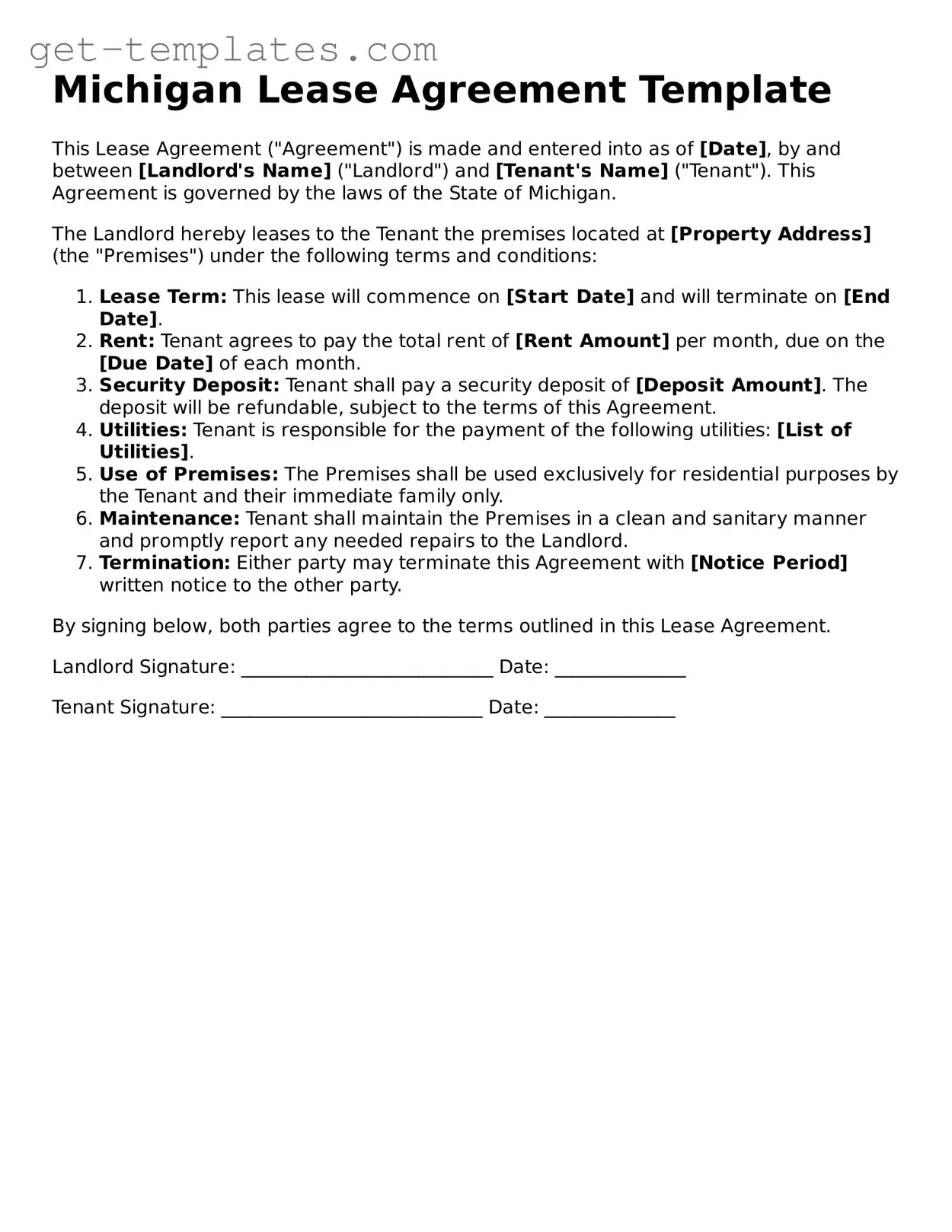What is a Michigan Lease Agreement?
A Michigan Lease Agreement is a legal document that outlines the terms and conditions between a landlord and a tenant for renting a residential property in Michigan. It specifies the rights and responsibilities of both parties, including rent amount, payment due dates, and maintenance obligations.
What should be included in a Michigan Lease Agreement?
A comprehensive Michigan Lease Agreement typically includes the following key elements:
-
Names of the landlord and tenant
-
Property address
-
Lease term (start and end dates)
-
Rent amount and payment schedule
-
Security deposit details
-
Rules regarding pets, smoking, and guests
-
Maintenance and repair responsibilities
-
Termination conditions
How long is a typical lease term in Michigan?
Lease terms in Michigan can vary, but they often last for one year. However, landlords and tenants can agree to shorter or longer terms, such as month-to-month arrangements or multi-year leases. It’s important to clearly state the lease duration in the agreement.
Can a landlord raise the rent during a lease term?
No, a landlord cannot raise the rent during the lease term unless the lease agreement specifically allows for it. Rent increases can only take effect after the lease expires or if there is a provision in the lease that permits it. Always review the lease terms carefully.
What is a security deposit, and how much can a landlord charge?
A security deposit is a sum of money that a tenant pays to the landlord before moving in. It serves as protection for the landlord against damages or unpaid rent. In Michigan, the maximum security deposit amount is typically one and a half times the monthly rent. The landlord must return the deposit within 30 days after the tenant moves out, minus any deductions for damages.
What happens if a tenant wants to break the lease early?
If a tenant needs to break the lease early, they should review the lease agreement for any early termination clauses. Generally, tenants may be responsible for paying rent until the lease ends or until the landlord finds a new tenant. It’s best to communicate with the landlord as soon as possible to discuss options.
Is it necessary to have a written lease agreement?
Yes, having a written lease agreement is highly recommended. While verbal agreements can be legally binding, they can lead to misunderstandings. A written lease provides clear documentation of the terms agreed upon by both parties, which can help prevent disputes in the future.
What should a tenant do if they have a dispute with their landlord?
If a tenant has a dispute with their landlord, they should first try to resolve the issue through direct communication. If that does not work, they may consider mediation or seeking assistance from local housing authorities. In some cases, legal action may be necessary, but it’s best to explore all options before proceeding.

